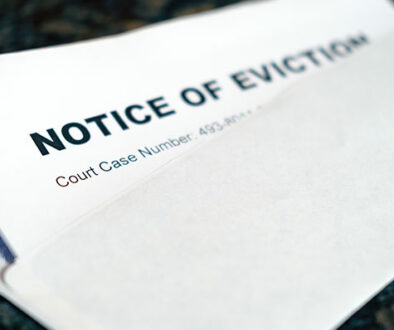Navigating Non-Compliance Effective Strategies for Landlords Dealing with Non-Compliant Tenants
Being a landlord often involves juggling various responsibilities. One of the most challenging scenarios is dealing with non-compliant tenants; whether its violating lease terms, causing disturbances, or neglecting property care, addressing non-compliance requires a strategic approach.
In this article, we’ll explore strategies from a landlord’s perspective to effectively manage and resolve issues with non-compliant tenants.
- Thorough Lease Agreement:
The foundation for dealing with non-compliance begins with a comprehensive lease agreement. Clearly outline expectations, rules, and consequences for non-compliance. Ensure tenants fully understand and acknowledge these terms during the lease signing process.
- Regular Communication:
Maintain open lines of communication with tenants. Establishing a relationship built on trust and understanding can encourage tenants to address issues proactively and can also help landlords gain insights into potential non-compliance concerns.
- Document Everything:
Record all communication, lease violations, and actions taken. This documentation serves as crucial evidence should legal action become necessary. Detailed records strengthen your case and provide a clear history of non-compliance for reference.
- Issue Written Notices:
When non-compliance occurs, issue written notices detailing the specific violation and the steps required for correction. Ensure these notices comply with local regulations and the terms outlined in the lease agreement.
- Understand Local Laws:
Familiarize yourself with local landlord-tenant laws. Understanding the legal framework provides guidance on the appropriate steps to take and ensures that actions taken are within the bounds of the law.
- Consult Legal Professionals:
Seek legal advice if the issue persists. A qualified attorney can provide guidance on the best course of action, whether it’s issuing eviction notices, pursuing mediation, or taking legal action to enforce compliance.
- Eviction as a Last Resort:
Consider eviction as a last resort. Before initiating eviction proceedings, explore alternative solutions, such as mediation or negotiation.
Eviction should only be pursued when all other options have been exhausted.
- Review Lease Renewal Terms:
When renewing leases, reassess and update lease terms if necessary. Consider whether any changes or additional safeguards need to be implemented based on your experiences and evolving property management needs.
- Engage in Mediation Services:
Some jurisdictions offer mediation services to resolve disputes without going to court. Mediation can be a valuable tool in finding common ground and reaching mutually agreeable solutions.
- Professional Property Management Services:
In cases of persistent non-compliance, consider hiring professional property management services. These professionals have experience in dealing with difficult tenants and can bring a level of expertise to handle challenging situations effectively.
Effectively addressing non-compliance requires a combination of clear communication, documentation, understanding of local laws, and, when necessary, legal intervention. By implementing these strategies, landlords can navigate the complexities of dealing with non-compliant tenants, protecting their property investment and maintaining a positive and compliant rental environment. Remember, proactive measures and strategic planning are key elements in resolving non-compliance issues and fostering a healthy landlord-tenant relationship.
From a property owner’s perspective; when dealing with delinquent tenants, eviction is the legally sanctioned process of regaining possession of one’s property.
Eviction becomes a necessary recourse when tenants consistently fail to meet their rent obligations or breach lease agreements. This often challenging and time-consuming procedure involves serving notices, filing court documents and attending hearings. Ultimately, eviction is a means to protect the landlord’s property investment and financial stability while upholding the legal rights and responsibilities of both parties involved.
Eviction can be a complex process that should be approached with care and adherence to the law. While it is a last resort, sometimes it becomes necessary to protect the interests of the landlord. By understanding the legal grounds, communicating effectively, seeking legal advice, and following the proper procedures, landlords can navigate eviction problems while maintaining legal compliance and safeguarding their property investments.
With Failure To Launch, landlords have an expedited and cost-effective solution to efficiently address eviction challenges without the usual prolonged timelines and costs associated with traditional legal channels.
You don’t have to go through expensive courts or eviction lawyers.


